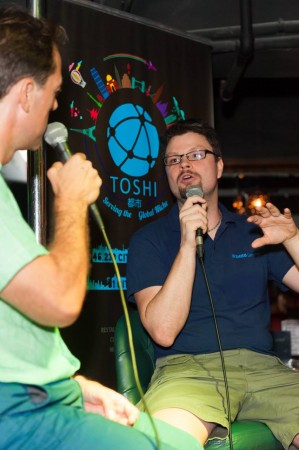I’m still baffled by the bold move of Silicon Valley investors valuing the company behind the Yo app at $10,000,000 USD. According to themselves Yo is:
The simplest & most efficient communication tool in the world.
Yo is a single-tap zero-character communication tool.
Yo is everything and anything, it all depends on you, the recipient and the time of the Yo.
To an ordinary mind like mine the app does not sound very interesting and from a targeting point of view too general than you could actually define a specific target audience for it. Yet, I was intrigued by the simplicity and most importantly by the buzz around it. About a month or so ago, I decided to download Yo. Right after it launched publicly, actually. I have 6 contacts on there and in the beginning it was kind of fun to Yo people just for the heck of it. Nowadays I only Yo ‘back’ if someone Yos me first.
The Wall Street Journal apparently has made a very compelling case that Yo might become a communications and marketing platform to allow people and brands to communicate with each other in a more simplified yet sophisticated way. For example, adding a link (that opens a website) to a Yo notification. To be honest, the real key word here is platform. That is what gets investors all nervous to throw money at you. To them, there is no benefit in funding just another app. It’s the platform behind the app that makes all the difference. Based on the anticipation of creating a simple and very direct marketing platform to bring brands closer to consumers makes check books open magically and throw money at an app that actually is absurd. In fact, Michael Santoli of Yahoo! Finance said: “When almost everyone immediately agrees that something is absurd – how can it possibly fail?”
So let’s look at the plain numbers thus far. According to the Yahoo! Finance article, Yo has “been downloaded 1 million times and has around 50,000 active users.” Based on a per active user valuation (which is how many tech and especially social media companies are valued by) that makes a staggering $200 per active user valuation. Compared to the $19bn WhatsApp takeover by Facebook which valued each of their 450 million active users at $42 per such user. The Yo valuation at 5 fold seems a little high. Anyway, another interesting aspect to look at, is the “stickiness” of an app. We at S4BB Limited look at a metric called “Retention” to determine the stickiness. In very simple terms, that’s the ratio between total downloads and active users. So at 50k active users and 1m total downloads, Yo has a retention of 5%. Common industry standard for a good / sticky app is something around the 20-25% retention mark.
Just to compare this to our recently re-launched Battery Watch app on Android: 193k total users, 103k active users, 58% retention. Here is a screen shot taken this morning in our Flurry app analytics console:

Based on the number of active users our valuation for Battery Watch should be twice the Yo valuation so we’d end up at $20 million. Based on the retention rate our Battery Watch should be valued at 11.6 times the Yo valuation. That would be an outrageous $116 million. Plus, compared to Yo, Battery Watch is even profitable already. Yo, b***!
Sure, Yo has all the publicity, the advantage of being located in Silicon Valley and the platform (hope) story behind it. While we don’t have the first and second point, our platform is currently being designed as well and will be launched in select markets very soon.
It remains to be seen how successful Yo can be in the long run. Right now it seems to be hip – at least on the investor and media side – but to build a long-term sustainable business model on top of that will be challenging. I wish the Yo team all the best in their endeavors.

More about Battery Watch: Battery Watch is a very simple, useful and yet fun battery monitoring tool. It combines essential battery information, useful TSA / UK DfT-compliant battery warnings with funny voices that make such a usually “boring / ordinary” utility app really fun to use. Try it for free through Google Play: http://bit.ly/BWatchA or BlackBerry World: http://bit.ly/GetBatteryWatch
About the author: Patrick is co-founder and CEO of S4BB Limited. An independent, boot-strapped mobile app company that has published over 48,000 apps for Android, BlackBerry and iOS. He is based in S4BB’s global headquarter in Hong Kong. Patrick has also co-founded and invested into other startups like Sky Drone, Toshi, TreeCrunch Limited, Skylab Mobilesystems Limited and Slate Takes Limited. You can find his full bio at www.patrick-kosiol.de or connect with him on LinkedIn, Xing or AngelList.

